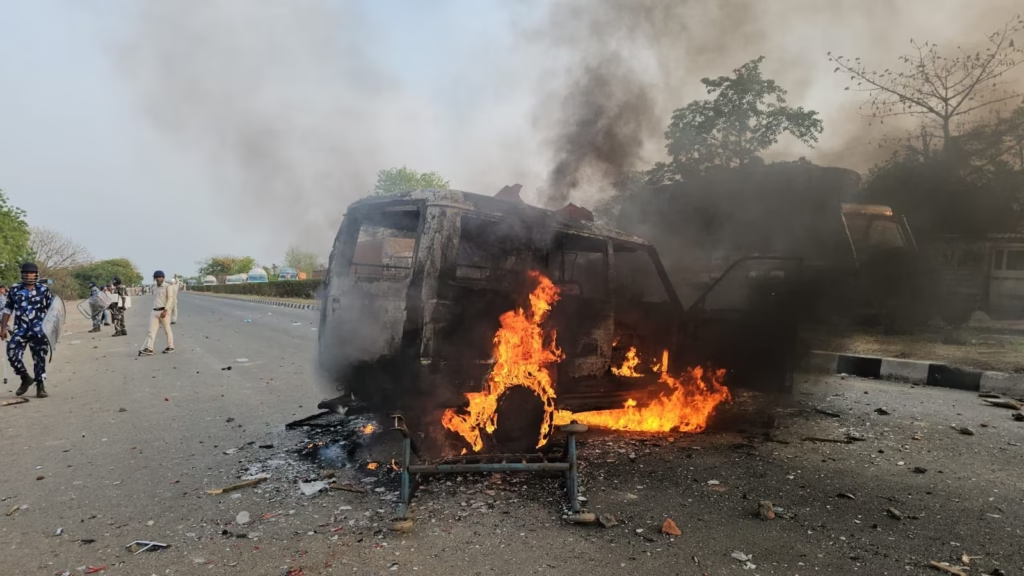Murshidabad Erupts in Violence Over Waqf Property Dispute: Communal Tensions Flare


Violent clashes broke out in Murshidabad, West Bengal, this week following a heated dispute over land allegedly registered under the Waqf Act, reigniting national debates over religious endowments and land ownership rights. At least 20 people were injured in the violence, prompting a heavy police presence and internet suspension in the area.
The unrest began after local residents protested the classification of a large plot of land as Waqf property. Protesters claimed that the land had been in public use for decades and accused the Waqf Board of seizing it without proper documentation or community consultation.
Tensions escalated when law enforcement attempted to disperse a gathering near the disputed site. Molotov cocktails, stone pelting, and arson were reported, leading to chaos and panic in the surrounding neighborhoods.
The Waqf Act of 1995 governs the administration of Muslim charitable endowments in India. While the Act is intended to safeguard religious properties and ensure proper use of endowed assets, critics argue that it often leads to opacity, land misuse, and legal ambiguity.
Opposition leaders have called for reforms to ensure transparency, while community leaders from both Hindu and Muslim communities have urged calm. “Religious trust cannot override public interest or transparency,” said a local BJP leader, accusing the state government of appeasement politics.
The West Bengal government has launched a judicial inquiry and promised fair resolution. Chief Minister Mamata Banerjee appealed for peace, stating, “We will protect every citizen’s rights. Let the law take its course.”
The police have detained over 30 individuals, and a curfew has been imposed in sensitive areas. Local authorities are now reviewing land records to determine rightful ownership and prevent further conflict.
As the situation stabilizes, the incident has fueled broader calls for reforming the Waqf Act, including digitizing records, establishing third-party audits, and increasing public consultation before land classification.